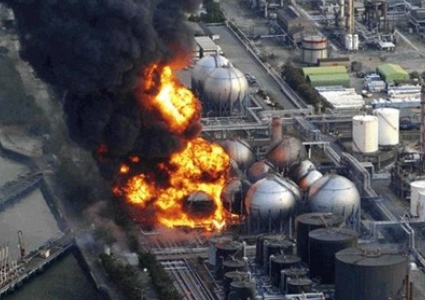Polling

Suggest an important issue not listed in this sub-category (). (Maximum 60 Characters)
Nuclear energy accidents

Federal regulations require energy companies to report accidents that result in loss of life or $50,000 in damage. Between 1952 and 2009, there were 56 of these accidents at our nuclear power plants, including the 1979 Three Mile Island disaster. Another 99 nuclear accidents have occurred in other countries since the 1986 Chernobyl disaster which killed 30 people, forever contaminated miles of Ukrainian real estate, and caused at least $7 billion in damages. Japan’s 2011 Fukushima Daiichi nuclear disaster resulted in 3 reactors melting down, airborne radioactive contaminates spread throughout the region, and continuing efforts to bring this catastrophe under complete control 12 years later. Although there may be relatively few immediate fatalities from nuclear power plant accidents, health advocates warn that many people exposed to radiation during and after these events are likely to get sick later in life. As we have constructed few nuclear plants in the past 30 years, our nation’s outdated power plants are older designs like those at Fukushima – and presumably just as dangerous.
Advocates claim the Fukushima disaster shows how little time there is for citizens to react to an escalating nuclear emergency and how important it is for local communities to be prepared for such an event. They also claim Japan’s chaotic attempts to use untried and untested methods to bring their reactors under control show how important it is for industry and government entities to be prepared as well. They say that, unlike Japan, we must prepare for nuclear plant emergencies before one may occur.
Proposed Legislation: Reintroduction of H.R.1700 - Nuclear Disaster Preparedness Act (113th Congress 2013-2014)
Prospective Sponsor: Rep. Mike Levin (CA)
Advocates claim the Fukushima disaster shows how little time there is for citizens to react to an escalating nuclear emergency and how important it is for local communities to be prepared for such an event. They also claim Japan’s chaotic attempts to use untried and untested methods to bring their reactors under control show how important it is for industry and government entities to be prepared as well. They say that, unlike Japan, we must prepare for nuclear plant emergencies before one may occur.
Proposed Legislation: Reintroduction of H.R.1700 - Nuclear Disaster Preparedness Act (113th Congress 2013-2014)
Prospective Sponsor: Rep. Mike Levin (CA)
Poll Opening Date
June 5, 2023
Poll Closing Date
June 11, 2023
Democracy Rules respects the privacy of your information.
See PRIVACY STATEMENT
See PRIVACY STATEMENT